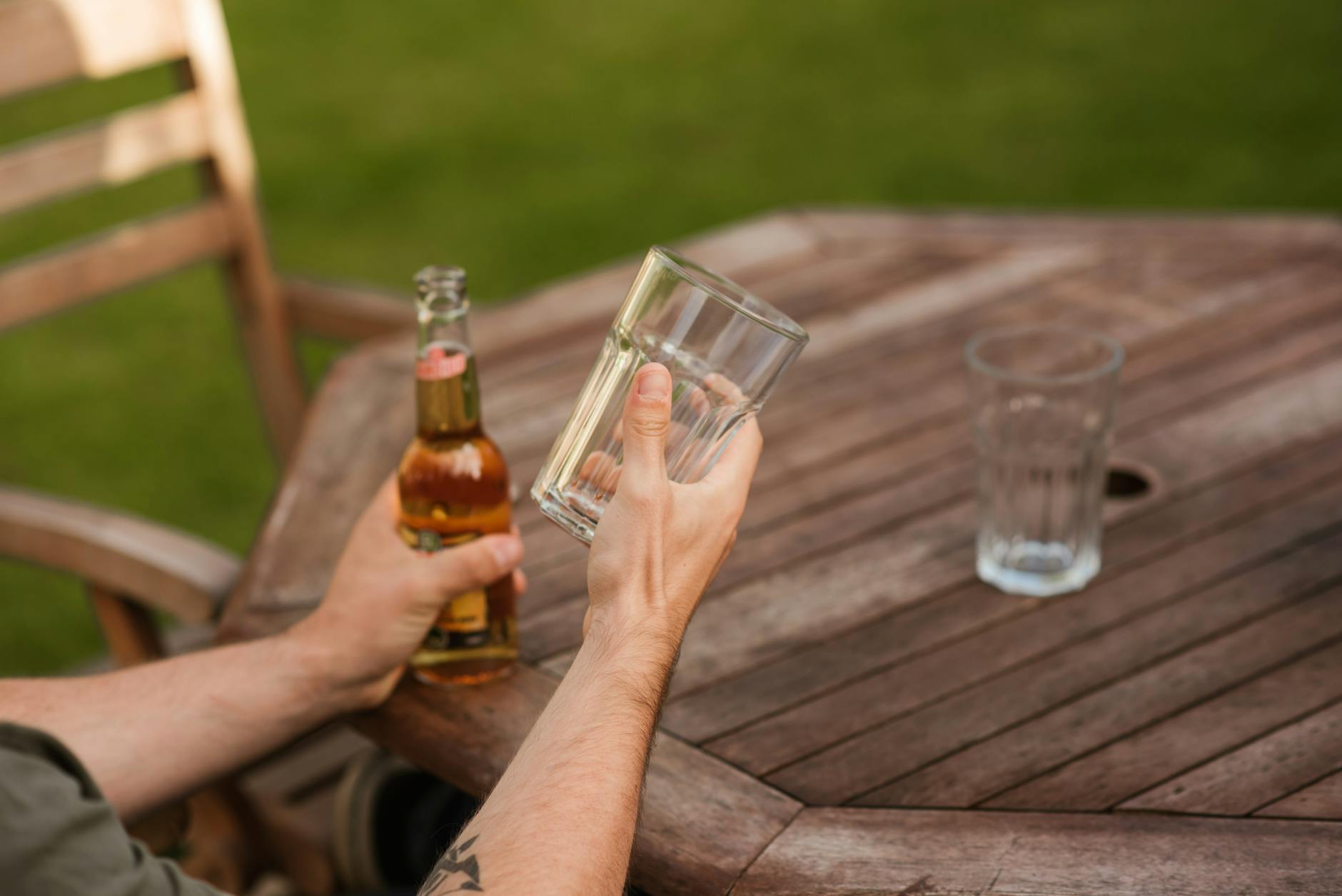Unlock the secret equation for the ultimate buzz! Discover how to calculate your perfect brews to booze ratio today.

Image courtesy of Anete Lusina via Pexels
Table of Contents
When it comes to the age-old question of how many beers it takes to get drunk, there is no one-size-fits-all answer. The amount of alcohol needed to reach a state of intoxication can vary greatly from person to person, depending on a variety of factors. In this blog post, we will delve deep into the science behind alcohol metabolism, individual tolerance levels, and the various factors that can influence how many beers it takes for you to feel the effects of alcohol.
Factors Influencing Intoxication
One of the main factors that influences how many beers it takes to get drunk is individual tolerance levels. Each person’s body processes alcohol differently, and tolerance can vary based on a variety of factors such as genetics, age, and overall health. For some individuals, it may take only a few beers to reach a state of intoxication, while others may be able to consume more before feeling the effects.
Body weight also plays a significant role in determining how quickly you will become intoxicated. Generally, individuals with a higher body weight are able to consume more alcohol before feeling drunk compared to those with lower body weight. This is because alcohol is distributed throughout the body based on body water content, and individuals with more body water are able to dilute alcohol more effectively.
Other factors that can influence intoxication levels include gender and overall health. Women tend to have lower tolerance levels than men due to differences in body composition and enzyme activity. Additionally, individuals with certain health conditions or taking medications that interact with alcohol may experience heightened intoxication effects even with a smaller amount of alcohol consumed.
Alcohol Metabolism and Blood Alcohol Content (BAC)
Understanding how alcohol is metabolized by the body can provide insight into how many beers it may take for you to get drunk. When you consume alcohol, it is primarily processed by the liver through a series of chemical reactions. The rate at which alcohol is metabolized can vary depending on factors such as the type of alcohol consumed, food intake, and individual metabolism.
Blood Alcohol Content (BAC) is a measure of the amount of alcohol present in your bloodstream. As you consume more alcohol, your BAC rises, leading to increased intoxication effects. The legal limit for driving in most states is a BAC of 0.08%, which is equivalent to consuming approximately four beers in one hour for a 160-pound individual.
Factors such as food consumption and alcohol concentration can also impact BAC levels. Eating a meal before drinking can help slow down the absorption of alcohol into the bloodstream, while consuming high-proof alcohol can lead to faster intoxication due to higher alcohol content per serving.
Conclusion
When it comes to determining how many beers it takes to get drunk, there is no definitive answer. The amount of alcohol needed to reach a state of intoxication can vary greatly depending on individual factors such as tolerance levels, body weight, and overall health. Understanding the science behind alcohol metabolism and BAC levels can help you make informed decisions about your drinking habits and stay safe while consuming alcohol.
Remember to always pace yourself, know your limits, and drink responsibly. Consuming alcohol in moderation and being aware of the factors that influence intoxication can help you enjoy your brews without going overboard.
FAQ
Question 1: How can I calculate my perfect brews to booze ratio?
Answer 1: To calculate your perfect ratio, consider factors like body weight, tolerance levels, and alcohol metabolism. Keep track of your drinks and BAC levels to determine your personal limit.
Question 2: Why do individuals have different tolerance levels to alcohol?
Answer 2: Tolerance levels vary due to genetics, age, gender, and overall health. Factors like body composition and enzyme activity can influence how quickly a person becomes intoxicated.
Question 3: Does food consumption impact intoxication levels?
Answer 3: Eating before drinking can slow down alcohol absorption, affecting BAC levels. Consuming a meal before alcohol can help mitigate the effects of intoxication.
Question 4: How does alcohol metabolism affect BAC levels?
Answer 4: Alcohol is metabolized by the liver, and the rate of metabolism can vary based on individual factors. The amount of alcohol consumed, type of alcohol, and metabolism rate all play a role in determining BAC levels and intoxication effects.
Generated by Texta.ai Blog Automation
Leave a Reply